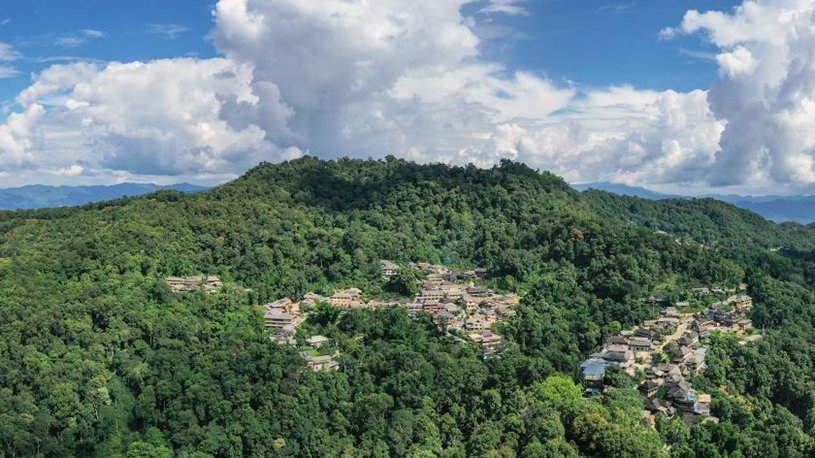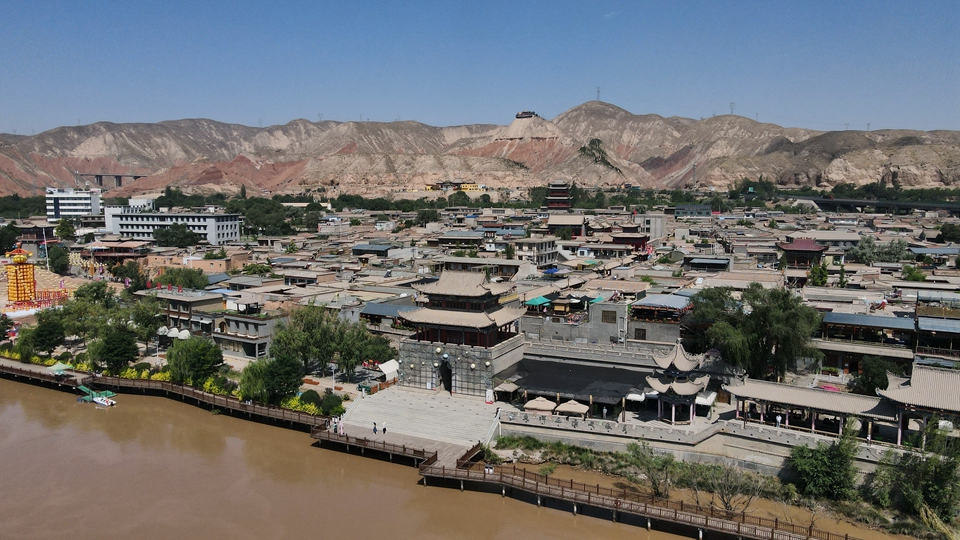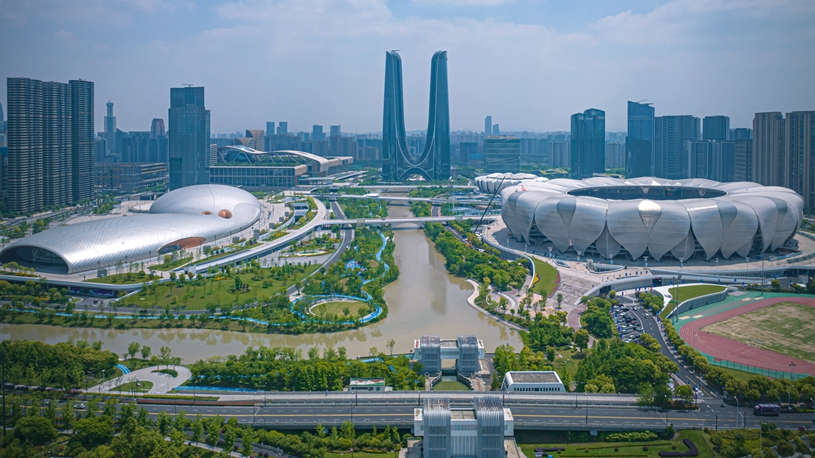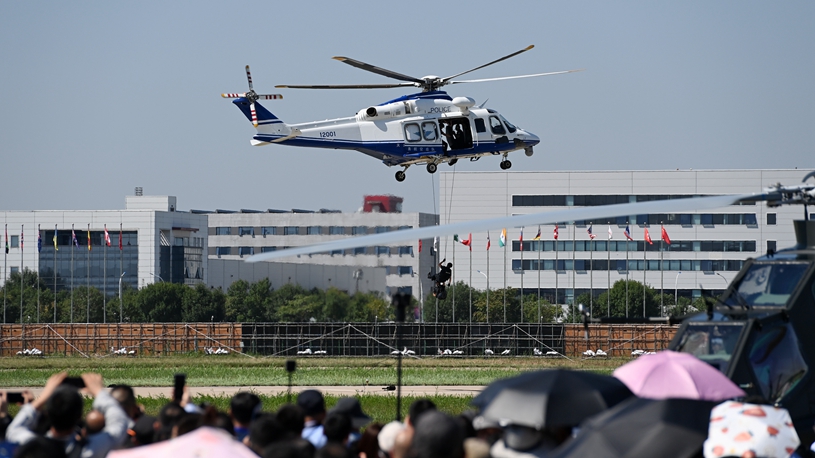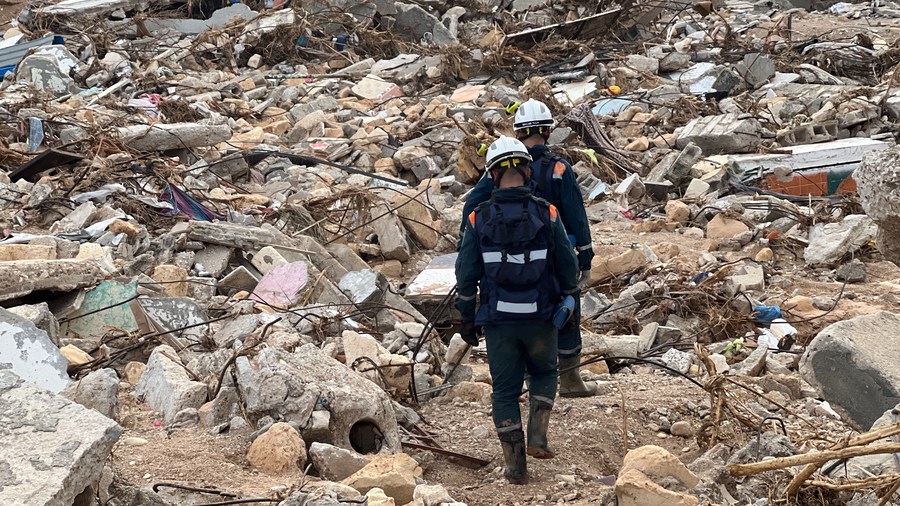
Members of the international rescue team search in ruins in Derna, Libya, Sept. 17, 2023. (Photo by Hamza Turkia/Xinhua)
TRIPOLI, Sept. 20 (Xinhua) -- Libyan experts have blamed political rifts, which were spawned by U.S.-led military intervention that ousted late leader Muammar Gaddafi in 2011, for aggravating the sufferings of residents in flood-hit areas.
"The political vacuum after the fall of Gaddafi is to blame for the fragile infrastructure in the country, which was not maintained or witnessed any new project as a result of the fighting between the Libyan parties," said Hassan Al-Musli, a Libyan political science professor from the University of Benghazi.
The West has no intention of restoring stability in Libya after the U.S.-led military intervention that ousted Gaddafi, and the current political instability will continue to cause suffering for the people in the flood-affected areas, he said.
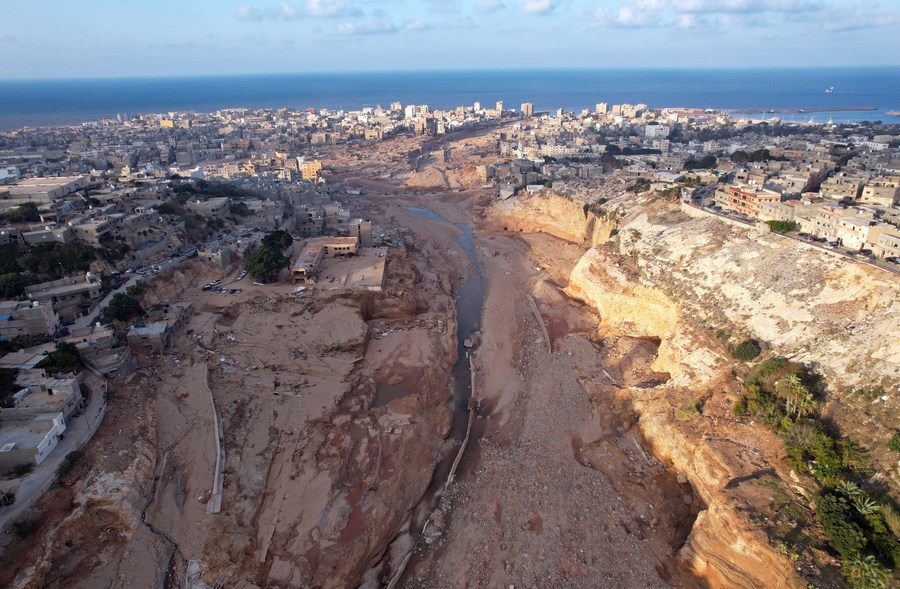
This aerial photo taken on Sept. 16, 2023 shows a flood-affected area in Derna, Libya. (Photo by Hamza Turkia/Xinhua)
Yousef al-Amari, a writer and researcher in the field of international relations at the Libyan Research Center for Strategic and Future Studies, said external interferences, especially those from the West, are nothing more than an attempt to exploit the internal divisions to keep Libya the way it is now.
Oil-rich Libya has been split between two rival governments, and each is backed by different armed groups and militias.
According to the experts, political divisions have worsened the already precarious situation in the North African country and made it more difficult to coordinate relief efforts that are badly needed by the residents in the flood-affected areas.
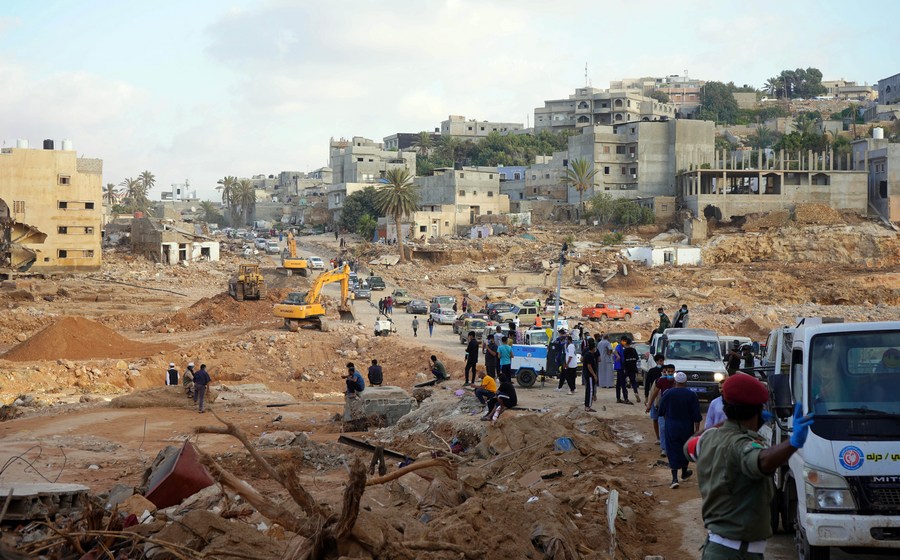
Rescuers work in Derna, Libya, Sept. 16, 2023. On Sept. 10, Mediterranean storm Daniel made landfall in Libya, bringing heavy storms and flash floods along its path in the northeast of the war-torn country and causing extensive damage to residential areas and infrastructure. (Photo by Hamza Turkia/Xinhua)
On Sept. 10, Mediterranean storm Daniel triggered the largest and worst floods in Libya in decades, which have claimed at least 5,500 lives and left another 10,000 missing, and severely damaged infrastructure.
Residents in the diaster-hit zone blamed both the natural disaster and Libya's years of war and chaos, which crippled the country's important infrastructure, early-warning systems and emergency response, for the heavy death toll and severe damage to private properties and public facilities.
Meanwhile, experts have highlighted the need of mending political rifts in order to facilitate relief efforts.
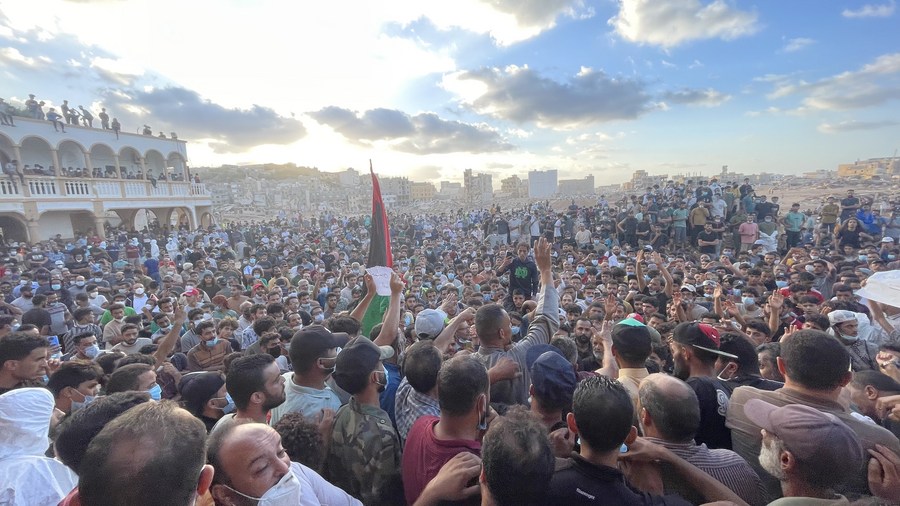
Hundreds of residents protest in front of a mosque in Derna, Libya on Sept. 18, 2023. (Photo by Hosam Turkia/Xinhua)
Khalil al-Kawafi, a former official from Libya's Ministry of Foreign Affairs and International Collaboration, called on Libyans to stay united in order to hold presidential and parliamentary elections, put an end to political divisions, and develop the national economy.
"The ongoing conflict between the Libyan political parties shows the magnitude of the difficulty in finding a political consensus that would lead the country through a safe democratic transition," said al-Kawafi.
The Libyan issue requires a local solution, which will become more effective if it is supported by an international initiative to start a dialogue between the Libyan parties, he said. ■

